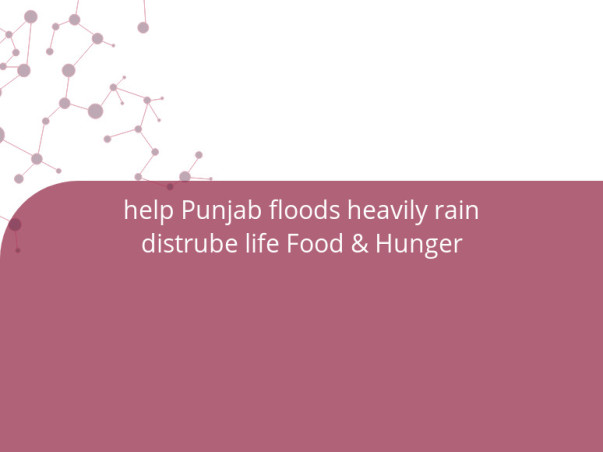I'm sorry to hear about the floods in Punjab causing heavy rain and disrupting life in the region. Flooding can have severe consequences for communities, including food and hunger issues. When such natural disasters occur, they often disrupt agriculture, damage crops, and infrastructure, leading to food scarcity and difficulties in accessing food supplies.
Floods can destroy farmlands, wash away crops, and contaminate water sources, making it challenging for farmers to cultivate crops and sustain their livelihoods. Additionally, the destruction of transportation routes and markets can hinder the distribution of food, leading to shortages and price increases.
In the aftermath of such disasters, humanitarian aid organizations and government agencies usually step in to provide assistance. They often set up relief camps to shelter displaced individuals, distribute emergency food supplies, and work to restore access to clean water and sanitation facilities.
Long-term solutions also focus on implementing measures to mitigate the impact of floods, such as building better infrastructure, early warning systems, and adopting sustainable agricultural practices.
It's essential to support and raise awareness of the situation in affected regions to attract aid and resources for those in need. If you'd like to help, consider donating to reputable relief organizations working on the ground or supporting initiatives aimed at disaster preparedness and resilience in vulnerable areas.
In general, floods can have devastating consequences, leading to the displacement of people, damage to infrastructure, and disruption of essential services, including the availability of food and clean water. During such emergencies, local authorities, humanitarian organizations, and government agencies typically work together to provide assistance and support to those affected. They may establish temporary shelters, distribute emergency supplies, and implement measures to ensure food security and address hunger concerns.
If you're looking for up-to-date information on the situation in Punjab or any other region, I recommend checking reliable news sources, government websites, or reaching out to local authorities or organizations involved in disaster response and relief efforts. They will have the most accurate and current information regarding the situation and the available support services.
Floods can destroy farmlands, wash away crops, and contaminate water sources, making it challenging for farmers to cultivate crops and sustain their livelihoods. Additionally, the destruction of transportation routes and markets can hinder the distribution of food, leading to shortages and price increases.
In the aftermath of such disasters, humanitarian aid organizations and government agencies usually step in to provide assistance. They often set up relief camps to shelter displaced individuals, distribute emergency food supplies, and work to restore access to clean water and sanitation facilities.
Long-term solutions also focus on implementing measures to mitigate the impact of floods, such as building better infrastructure, early warning systems, and adopting sustainable agricultural practices.
It's essential to support and raise awareness of the situation in affected regions to attract aid and resources for those in need. If you'd like to help, consider donating to reputable relief organizations working on the ground or supporting initiatives aimed at disaster preparedness and resilience in vulnerable areas.
In general, floods can have devastating consequences, leading to the displacement of people, damage to infrastructure, and disruption of essential services, including the availability of food and clean water. During such emergencies, local authorities, humanitarian organizations, and government agencies typically work together to provide assistance and support to those affected. They may establish temporary shelters, distribute emergency supplies, and implement measures to ensure food security and address hunger concerns.
If you're looking for up-to-date information on the situation in Punjab or any other region, I recommend checking reliable news sources, government websites, or reaching out to local authorities or organizations involved in disaster response and relief efforts. They will have the most accurate and current information regarding the situation and the available support services.






